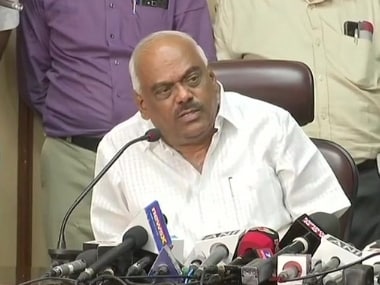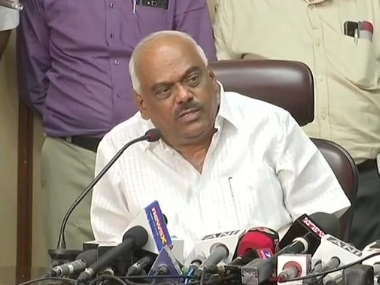In the 15th Lok Sabha, one of the members named in the panel of chairpersons was Raghuvansh Prasad Singh. While presiding over the proceedings, one of the punchy statements that Singh would often make was that “in the House, there is a paksh (treasury benches), a vipaksh (Opposition), and a nishpaksh (the chair/a neutral authority). While Singh had not said anything new, his statement reflected the spirit behind the creation of the Speaker’s post in the Lok Sabha and state Assemblies. Constitutional norms make the Speaker’s post unique and vest a great deal of power in the person holding the post. The framers of the Constitution made the Speaker the supreme authority in matters relating to the conduct of business, including rights and privileges of members. The intention is that once a person is elected as the Speaker, he or she would act in a fair and impartial manner, not as a representative of a party, even though he or she may have been elected on a ticket of the ruling party, or a member of the ruling coalition. Now, consider the ongoing developments in Karnataka. [caption id=“attachment_6977731” align=“alignleft” width=“380”]  Karnataka Speaker KR Ramesh Kumar. Twitter @ANI[/caption] Last Friday, Chief Minister HD Kumaraswamy sought a vote of confidence on the floor of the state Assembly. The Speaker KR Ramesh Kumar was then presiding over the House. A week later, the Karnataka Assembly is seized of the matter, but there is no sign of the actual vote of confidence. The vote of confidence sought by Kumaraswamy was finally taken up on Thursday, but even after several rounds of speeches, it appears that the chief minister is yet to finish his preliminary submission. During his speech, long interventions by ministers and other MLAs were allowed, and thus, the chief minister’s “initial submission” for moving the trust motion has become unending. The situation could not be more bizarre than this. A trust motion is serious business, as it concerns the survival of the government of the day. In that sense, it has an impact on governance for every person in the state. But what is unfolding in the Karnataka Assembly is a complete mockery of democratic norms. The norm in such situations is that the chief minister moves a one-line motion to initiate a debate. Various members from the ruling party and Opposition speak, make allegations and counter-allegations, and the chief minister makes his concluding remarks. Thereafter, voting takes place. Generally, all of this happens on the same day (till midnight). Only in exceptional circumstances does the process extend to the next day, but that too is meant to be completed in a given time frame. However, it appears that Karnataka is creating a precedent of its own. It is now clear that the Kumaraswamy-led government has lost the majority in the House. Twenty MLAs, including independents and those from the Congress, JD(S) and BSP, who were part of the ruling coalition, have chosen not to attend proceedings in the House. Sixteen of them have resigned, but the Speaker has been sitting over the resignations for two weeks. The Supreme Court has clarified that attending or not attending the proceedings of the House is up to the free will of the MLAs. Their counsel Mukul Rohatgi had contended that the three-line whip issued by their original parties would not apply to them. One fails to understand what prevents the Speaker from taking a decision on the resignation of the 16 MLAs. Despite having personally met them, he still wants to further satisfy himself. The ongoing discussion in the House is presently revolving around technicalities. The Congress and JD(S) are using every possible trick to delay the voting. The Speaker is allowing MLAs to speak indefinitely, and is not interfering with respect to the issues they are raising, and the number of times they are intervening. What’s more, on Wednesday, the House was also adjourned so that the Congress’ charge against the BJP of “abducting” MLAs could be looked into. The government has on three occasions disobeyed the governor’s directive to the chief minister to conclude the trust vote. The Speaker has argued that the directive has been given to the chief minister, not to him, and thus, he would run the House as per the norms he deems fit. It now seems that the earliest the voting could happen would be on Monday. The governor is the head of the state, and is perceived to be an appellate authority in terms of upholding the Constitution. However, the unfolding scenes in the Karnataka legislature indicate, at least for now, that his writ does not run outside of Raj Bhawan. The people will now judge whether the Speaker acted in an impartial manner as required by the Constitution, or as a representative of the party to which he belongs. There appears to be a breakdown of the constitutional machinery in the state, and it is time that the Centre should seek a report regarding this from the governor. Follow live updates on the Karnataka political crisis here
It is now clear that the HD Kumaraswamy-led government in Karnataka has lost the majority in the House.
Advertisement
End of Article


)
)
)
)
)
)
)
)
)



